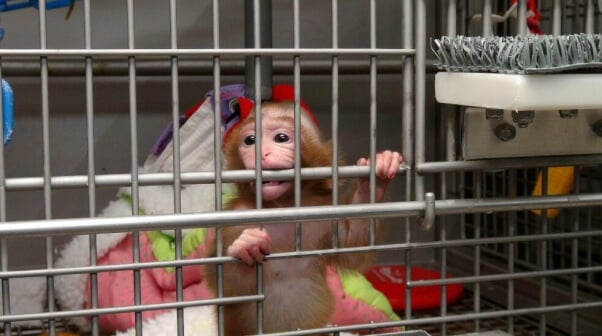Yale Professor Says Experiments on Animals Are Wasteful
Another day, another scathing indictment of experiments on animals. Dr. Michael Bracken, professor of epidemiology at Yale University’s School of Public Health, gave a lecture at the National Institutes of Health (NIH) last month during which he argued that experiments on animals are wasteful and inefficient—noting that nearly 90 percent of biomedical research wastes money and resources and could be harmful to people’s health. The lecture echoed a paper that Dr. Bracken had co-published in 2014 titled “Is Animal Research Sufficiently Evidence Based to Be a Cornerstone of Biomedical Research?”
His answer, it seems, is “No.”
Eric Bock reported on Dr. Bracken’s lecture in the NIH Record:
“Existing systematic reviews of animal studies show that very few studies are blinded or randomized. [Dr. Bracken] believes animal study methodology is 40 years behind human clinical study design. ‘There is never any justification for the use of animals or humans in poorly designed studies,’ he said.”
PETA’s campaign to get animals out of laboratories has repeatedly shown the experiments to be wasteful and ineffective:

- After PETA exposed NIH’s archaic maternal deprivation experiments on infant monkeys and showed that they were horrendously abusive and did not contribute to our understanding of human mental illness, NIH agreed that they were not scientifically useful and ended them. In the wake of PETA’s successful NIH campaign, and thanks to the advocacy of compassionate Congressional representatives, NIH is organizing a workshop to discuss the ethics of using primates in NIH-funded experiments. There is overwhelming scientific evidence that experiments on monkeys (and other animals) have failed to be applicable or relevant to human experience, and NIH should take the opportunity to reevaluate its funding of experiments that cause so much suffering and produce nothing of value.
- In sound-localization experiments at the University of Wisconsin–Madison, holes were drilled into cats’ skulls and steel coils implanted in their eyes. Following an intensive PETA campaign to expose and end the experiments, the federal grant money expired, the lead experimenter retired, the embattled laboratory closed its doors for good, and the remaining four cats in the laboratory were adopted out into loving homes.
- The PETA International Science Consortium Ltd. has been actively involved in the development of new toxicological testing methods and has been actively providing technical support to companies and researchers seeking to replace and reduce the use of animal tests.
- To date, PETA and its international affiliates have provided more than $2 million in funding for promising non-animal test methods and other alternatives to replace animal use.
More and more, forward-looking scientists are turning to modern, non-animal research methods that are faster, cheaper, and more reliable, and PETA is proud to be a valuable resource for them.

